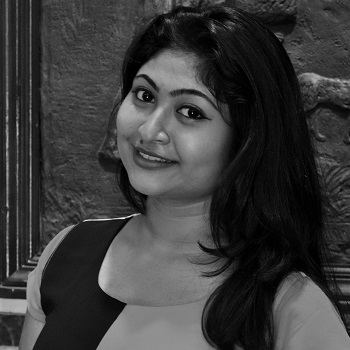The investment in science, technology, and innovation (STI) activities, particularly in research and development (R&D), is essential for the economic growth of a country. STI activities help in addressing the immediate challenges of the COVID-19 health crisis.
In times of crisis, many research institutions were forced to develop new research models and implement organizational changes to absorb short-term shocks and ensure the consistency of academic viability. However, such transformations rarely happen automatically. The lockdown period
is not a work retreat, rather, it was a challenging time for academics to work under restrictions and uncertainty.
Some of the major changes in undertakings of the R&D in the COVID-era include:
Launching new research models: Volunteers, scientists, and medical and research students across the world, compromising their existing schedules, started working on covid testing, development of vaccines, testing of vaccines, and providing immediate health care to the affected ones.
Improving productivity: The research and development sector witnessed a sufficient increase in productivity in the COVID-era. For example, most research institutes shifted from basic research to industrial research and partnered with companies to develop a product.
Developing new products: Educational industries and companies develop innovative methods and technologies to combat the virus. For example- DBT-inStem (Institute for Stem Cell Science & Regenerative Medicine) developed a germicidal-coated face mask prototype for an effective fight against viruses.
Redefining Collaboration: The COVID era has seen an increased deal of cross-border, interdisciplinary, cross-sectoral, and multilateral collaboration in the research and development sector.
For example- The surface disinfectant innovated by IIT-Guwahati in collaboration with Berger paints. The researchers say that disinfectant stays active for an extended period on the applied surface by forming a protective nano-silver coating that fights off bacteria and viruses for a longer duration.
Shifting operations: Thousands of researchers, scientists, and students have coordinated their work by switching it to shifting hours: allowing them to work on their own studies and working in COVID-related matters.
At the heart of each of these examples is speed and accuracy: getting things done fast, and well. Organizations have removed boundaries and have broken down silos in ways no one thought was possible, and there’s no turning back! The pandemic has played a key role in reshaping the world, where the word “normal” is fading away and has to be rewritten.
Challenges in the Post COVID-era
The high-risk scenario: Science Diplomacy and Science Policy
Science policy could turn toxic, as governments may fail to control the after scenarios of COVID while answering some questions about what they are doing and why. Failure to collaborate internationally can hinder the process of international R & D and the allocation of funds for research. Developing countries that depend on foreign nations can severely affect if the funds are not allocated. It may result in Global acceptance or Global rejection of a country.
For example- most of the countries now have a negative attitude towards China. Few of the countries even want to break the economic ties with China- this leading to the Global rejection of China. Whereas, the first world countries now see an opportunity to collaborate economically, scientifically, and politically with the developing countries like- India, Philippines, Malaysia, etc.: this may lead to Global acceptance. However, to conclude victory either for autocracy or democracy in this crisis, diverse political regimes must work together in the post COVID world.
Reconstruction
It is visible these days that many R&D institutions were forced to shift their focus to COVID-related innovations. Particularly the organizations like DRDO turned into COVID-oriented innovations. This is a high-risk scenario where the pressure of allocating funds for the core institutional research and the innovation process may see slow growth
Digital Acceptance
The pandemic saw growth in global digital acceptance. We saw a digital surge in people adopting digital innovations and technologies. Is this attitude of people towards digital technologies going to be a long-term habit? Or does digital skepticism step in and digital usage slowly decreases? This is going to be a huge challenge in the post COVID era. Since many digital-only R&D initiatives are in process and longevity of those initiatives depends on digital acceptance.
Reopening the city
Cities are in the reopening mode. That means measures to control and hold new waves of infection should be enforced. This is crucial, particularly for a Research and Development facility. New structuring in the utilisation of R&D infrastructure will be at high priority while reopening. Along with the mechanism to combat the infections, finding funds to regulate the ongoing R&D works should be in place since the cost of resources will surge in the post COVID era.
Financing our health
Most developing countries already have to finance their health, despite the government helping to develop hospitals and public healthcare. Now, as the countries are facing debt stress, they may also lead to cutting public healthcare facilities.
In this scenario, what has been called “scenario planning” is a very important tool for organisations to settle discrepancies. This tool is designed to help organisations plan for uncertain future events. Many organisations, such as the oil and gas industry have a controlled set of risk management strategies to combat major vulnerable situations. COVID-19 has placed all sectors and organisations within a context of uncertainty, requiring them to plan for extraordinary normal days in the future. Nonetheless, just as a crisis carries risks, it also is accompanied by multiple opportunities– the post COVID-19 normal, more resilient, and sustainable – may hinge on our ability to effectively mitigate the risks despite the presence of negative social-psychological scenarios.
Written by Moumita Mazumdar

A microbiologist who loves to learn new stuff. Sciteum’s go-to-girl, who not only give suggestions but also fixes the things up. 6 or 60 she communicates in style with all age groups.
